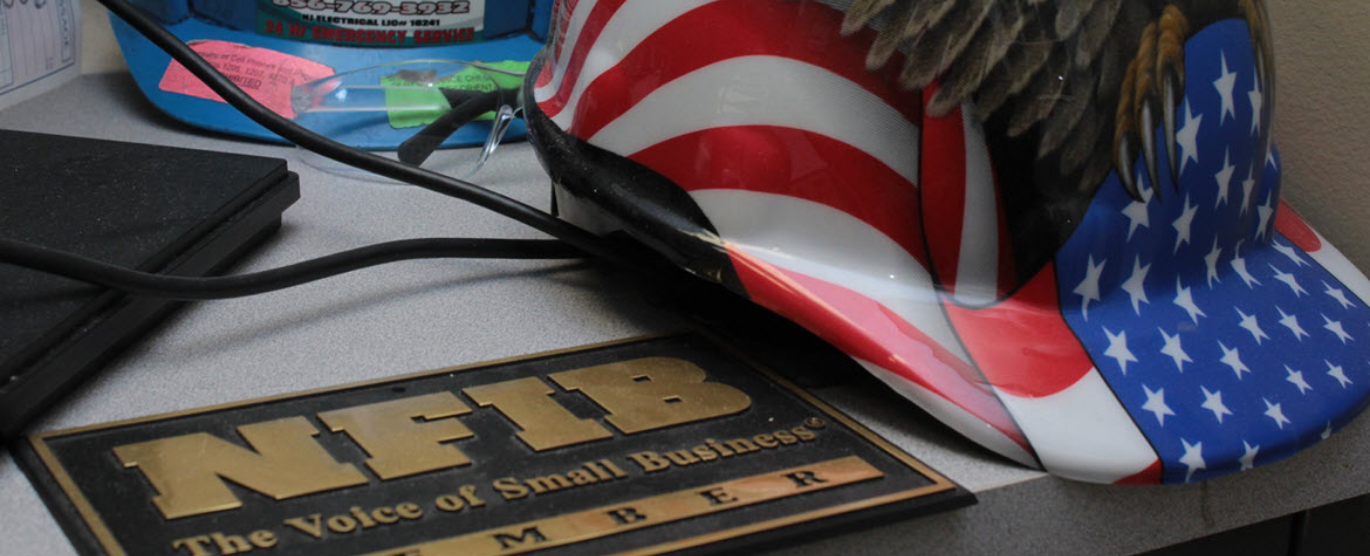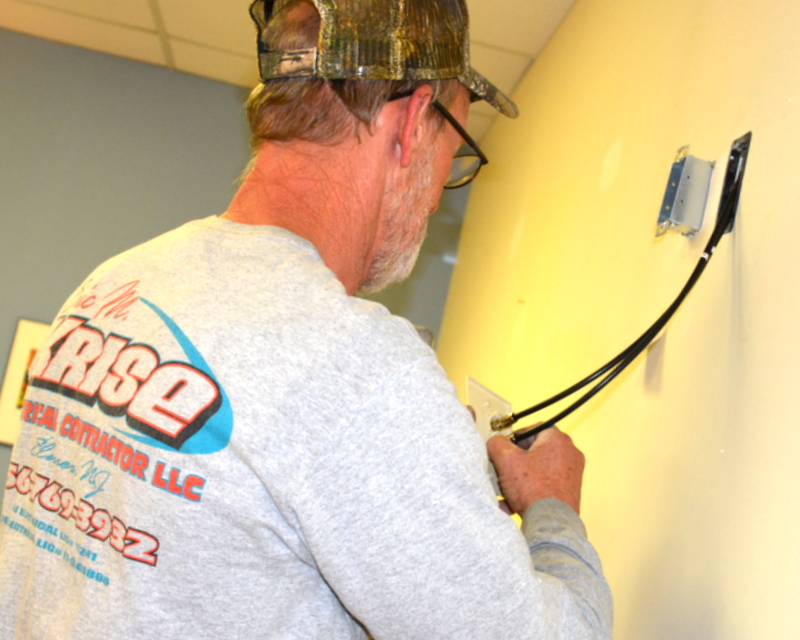Electrical safety is a major safety concern and is why electrical codes are in place for both business and residential uses. Which is a pretty good thing when you think about it. Electrical hazards are a major cause of fires and can also cause shocks and other injuries including electrocution.
Still, the sheer amount of building codes that apply to businesses, including OSHA Safety Regulations, can get pretty confusing. In New Jersey, we use the National Fire Protection Code. The code is not federal law, but adopted individually by the states.
These codes are constantly being updated. Regulations that now require ground fault circuit interrupter outlets, designed to stop shocks, in areas near water such as sinks and showers are an example of the types of upgrades business owners should be aware of, especially if the business is housed in an older facility.
Faulty and outdated wiring is one of the leading causes of electrical fires in businesses.
That’s why it’s important to have regular inspections such as we offer here at Eric Krise Electrical, to not only look for problems with your electrical system, but also to stay on top of the latest safety regulations.
Remember, these electrical codes are designed to prevent personal injury and fire. Regulations on such things as making sure your system is safely wired and electrical equipment are properly grounded may sound boring, but the goal is to prevent accidents or a disaster that could sink a small business
Anyone in violation of electrical and business codes that led to an unsafe condition can be liable in civil lawsuits for negligently creating a situation that results in loss of life or property.
Here’s a look at some safety tips for using electricity in the workplace as inspired by Montana Tech:
- Start off by planning every job and consider what could go wrong. In planning, prepare with drawings and documents, and ensure that you have the right tools needed for the job.
- Keep safety in mind. Don’t let anyone who is not trained to do the job get involved and be sure to use protective equipment. We know that helmets and eye protection aren’t always comfortable, but they are necessary and may save you and others from serious harm. Take a look around and identify any hazards that may be near the work area. And make sure to lockout/tagout equipment.
- If you’re using a ladder or vehicle that will elevate you near overhead power lines, its’ a good idea to call your local electric utility for assistance.
Taking time to review your equipment is especially important.
- Never use anything that doesn’t bear the mark of an independent testing laboratory such as UL, CSA, ETL, or MET Labs.
- Before plugging in and turning on, check equipment cords for damage such as cuts or cracks.
- Make sure that all three-wire tools and equipment are grounded and always use GFCI protection in wet or even damp environments.
Know before you go. What we mean is, do a little bit of research before you start to get to work.
- Make sure that you and your team are aware of all buried or embedded electrical circuits before you start the work.
- Once you are on-site, identify where any and all circuit breakers and fuses are located. If an incident does occur, you’ll be able to access them.
Do you have questions or concerns about electrical safety at your business? Give us a call at 856.769.3932.




